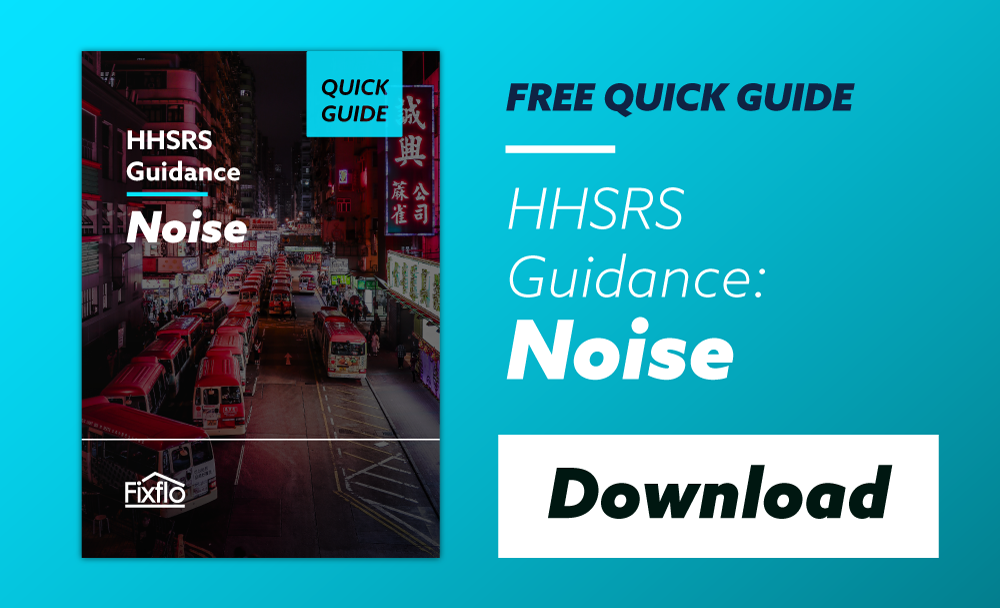We all lead busy, noisy lives. With the sound of traffic, dogs barking or car alarms a near constant in most cities (and don’t underestimate the sound of the countryside*), it can be hard to imagine living somewhere with a real sense of peace and quiet. But while most tenants expect a certain amount of noise in their property – and landlords and tenants are well practiced in convincing us we’ll get used to the sounds of the street outside – the updated Housing Health and Safety Rating System (HHSRS) is tightening the definition of acceptable noise level – and it could have ramifications for landlords.
Some noises, like traffic, trains or the property’s proximity to the sound of live events, are unarguably the product of the property’s location and, as such, are beyond the control of the landlord. But there are still options for landlords looking to minimize the impact of external (or internal) noise on a property. Taking the following steps should ensure that properties fall within the boundaries of acceptable sound levels and avoid landlords receiving requests for HHSRS inspections that could lead to more serious consequences.
Simple ways to minimize noise levels:
-
Installing double-glazing (or even triple glazing in extremely built up areas) is one way to reduce or block the impact of the noise from outside a property
-
Conducting a review of all structural features to inspect the soundproof quality of things like external doors, floorboards and ceilings is an effective way for property owners to identify noise concerns before they become tenant issues.
-
Moving from external sounds to internal noise, landlords should ensure that white goods like washing machines or tumble driers are kept away from separating walls to minimize their sound.
-
In properties of multiple occupancy or blocks, plumbing and bathrooms should be positioned away from bedrooms in both your property and neighbouring properties to reduce the impact of water running through pipes at night.
Investing in ways to reduce noise in a property may seem inconvenient or costly but it’s worth doing. Although local authorities are unlikely to serve a hazard awareness notice or issue a demolition order for a noise-related issue – under the HHSRS rules, they have every right to. More to the point, quieter, well-insulated properties with no noise concerns are something that every desirable tenant will be looking for. By taking steps to ensure your property fits into this category, you’re also taking steps to ensure the quality of your tenant.
For more information about the HHSRS and the impact it might have on your property and your responsibilities as a landlord or agent, why not download our FREE E-book, ‘HHSRS Guidance: Noise’.

* Wildlife, farm machinery and large transport vehicles are just some of the noises countryside residents complain of.
BLOG DISCLAIMER
This article is intended for information purposes only and does not constitute legal advice. If you have any questions related to issues in this article, we strongly advise contacting a legal professional.
These blog posts are the work of Fixflo and are licensed under a Creative Commons Attribution-ShareAlike 3.0 Unported License. In summary, you are welcome to re-publish any of these blog posts but are asked to attribute Fixflo with an appropriate link to www.fixflo.com. Access to this blog is allowed only subject to the acceptance of these terms.


